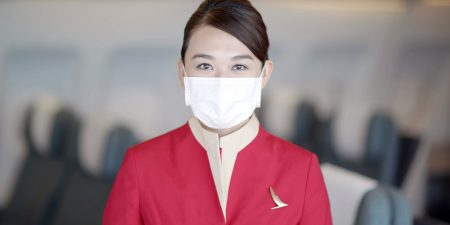European ETS, biofuels put aviation at a crossroads on environmental issues, says Cathay Pacific COO
“Despite monumental efforts and tangible progress towards making sustainable aviation a reality, the challenge to address our environmental impact is even greater in the face of our continued growth as the demand for our services increases,” he said.
Mr Chu was giving the opening address at the fourth “Greener Skies” Aviation and Environment Conference, held in Hong Kong today. Cathay Pacific is the official conference airline and a keen supporter of the event, which this year focused on two issues critical for airlines and their partners: the expected impact of the European Union Emissions Trading Scheme, which is intended to launch on 1 January 2012, and the rapid progress being made on the development of sustainable biofuels.
“We are all here today because we agree that the challenges facing aviation over climate change issues are critical for the industry. The environment - once seen as marginal or optional to our business activities - is now firmly established as a mainstream issue,” Mr Chu said.
“Carbon trading is almost upon us. We have clear and comprehensive industry targets to tackle climate change. The notion of achieving carbon neutral growth is now firmly embedded into our strategic thinking.
“But how carbon trading impacts airlines and the level of greenhouse emissions remains a critical issue, and the European Union’s controversial ETS has led to legal challenges and fierce opposition and debate among stakeholders – not just airlines, but consumer and green groups as well.”
In his opening remarks, Mr Chu welcomed “an old friend”, Tony Tyler, Director General and CEO of the International Air Transport Association and former Cathay Pacific Chief Executive, and Mary Veronica Pleterski, Director EU International and Carbon Market. The latter’s presence at the Greener Skies event recognised that a lot more dialogue was needed on the “very contentious” EU ETS, Mr Chu said.
On the subject of new aviation fuel solutions, Mr Chu said that sustainable aviation biofuels are an emerging reality. “New technologies continue to offer even greater improvements both on the ground and in the air. Sustainable biofuels, whilst ready as a drop-in solution and for commercial use, carry a price premium that makes them currently uncompetitive versus conventional jet fuel, and they are not yet available in sufficient quantities to meet our global fuel demand to be truly viable.
“There are still question marks over the true sustainability of certain feedstocks and we have seen how willing the green lobby is to actively campaign against airlines and suppliers promoting their usage, even if the reality is rather different.
“As an industry, we need to take on these arguments and demonstrate our commitment to finding alternatives to jet fuel that make economic sense and that will make a real contribution to emissions reduction,” Mr Chu concluded.











